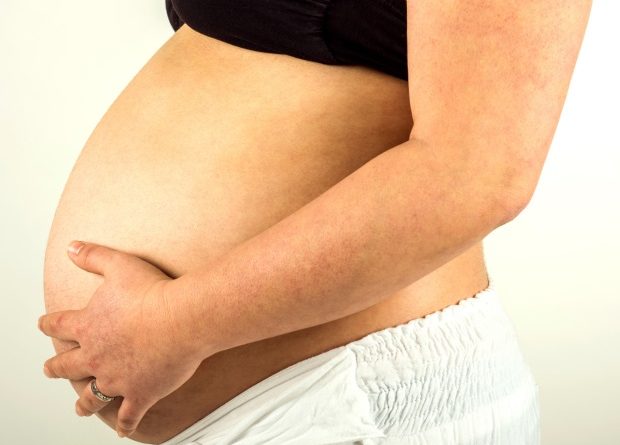CBD exposure during pregnancy can potentially harm a developing fetus
Reviewers’ Notes
Researchers at the University of Colorado Anschutz Medical Campus have found that cannabidiol (CBD), often used to treat anxiety and nausea, can potentially harm a developing fetus.
The paper was published in Molecular Psychiatry today.
People consume cannabis or a non-psychoactive component cannabidiol (CBD) to help with nausea and anxiety during pregnancy because they think it is safe and healthy. But CBD crosses the placenta and accumulates in the fetal brain.
Until now, no one knew how fetal exposure to CBD affected brain development, said Emily Bates, PhD, an associate professor at the University of Colorado School of Medicine and lead author of the study.
"We found oral consumption of a high dose of CBD during pregnancy impaired problem solving in female mice," said Bates, who worked with Karli Swenson, a graduate student in her lab.
Along with fellow researchers, Won Chan Oh, PhD, Luis Gomez-Wulschner and Victoria Hoelscher, the team discovered that fetal exposure to CBD reduced the excitability of the pre-frontal cortex, a part of the brain important for learning.
They also found that increased pain sensitivity occurred only in male mice while cognitive impairments happened only in females. Bates said more research is needed to understand why the effects of CBD are sex-specific.
The perceived benefits of CBD are widely accepted in the U.S. where many view it as a safe alternative for treating the nausea, anxiety, and pain associated with pregnancy, Bates said. She hopes this study will allow physicians and patients to make more informed decisions about what to consume during pregnancy.
This study is important to help clinicians and pregnant patients know that consuming CBD during pregnancy may have some effect on the brain development of offspring. It's important now more than ever because CBD recently became federally legal and is available at grocery stores and gas stations. We need clinicians to start asking about CBD consumption at prenatal visits and educate the public about potential risks during pregnancy."
Emily Bates, PhD, Associate Professor, University of Colorado School of Medicine
The next step will be to determine if the timing and doses of CBD during different trimesters of pregnancy impact the frequency and severity of these impairments.
University of Colorado Anschutz Medical Campus
Posted in: Child Health News | Medical Science News | Medical Research News
Tags: Anxiety, Brain, Cannabidiol, Cannabis, Children, Cortex, Education, Frequency, Hospital, Medicine, Nausea, Pain, Pharmacology, Placenta, Pregnancy, Prenatal, Psychiatry, Research
